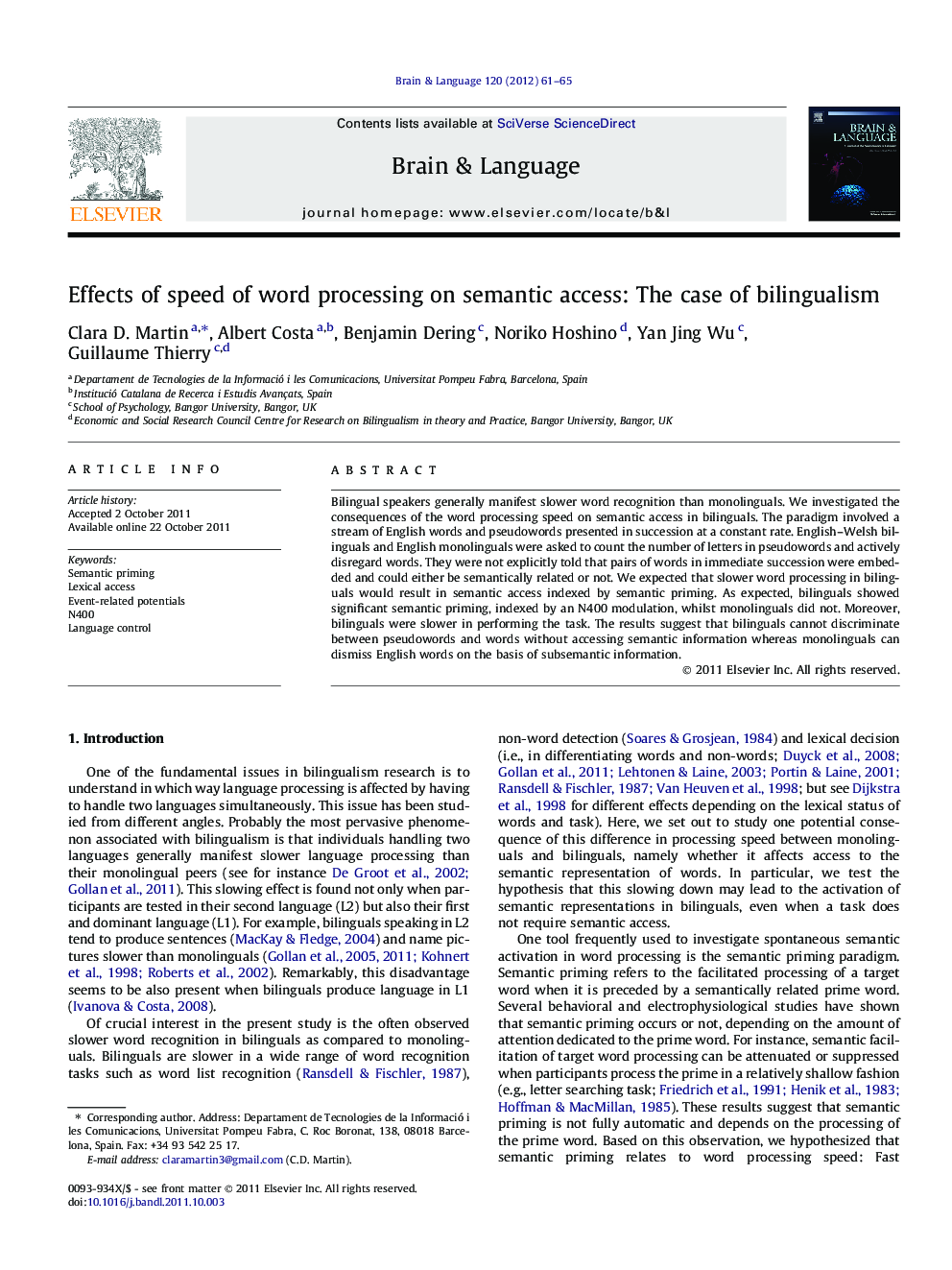| Article ID | Journal | Published Year | Pages | File Type |
|---|---|---|---|---|
| 925553 | Brain and Language | 2012 | 5 Pages |
Bilingual speakers generally manifest slower word recognition than monolinguals. We investigated the consequences of the word processing speed on semantic access in bilinguals. The paradigm involved a stream of English words and pseudowords presented in succession at a constant rate. English–Welsh bilinguals and English monolinguals were asked to count the number of letters in pseudowords and actively disregard words. They were not explicitly told that pairs of words in immediate succession were embedded and could either be semantically related or not. We expected that slower word processing in bilinguals would result in semantic access indexed by semantic priming. As expected, bilinguals showed significant semantic priming, indexed by an N400 modulation, whilst monolinguals did not. Moreover, bilinguals were slower in performing the task. The results suggest that bilinguals cannot discriminate between pseudowords and words without accessing semantic information whereas monolinguals can dismiss English words on the basis of subsemantic information.
► Bilinguals access the meaning of disregarded words when it is not required. ► Monolinguals do not access the meaning of disregarded words. ► Early highly proficient bilinguals access semantics during lexical decision.
